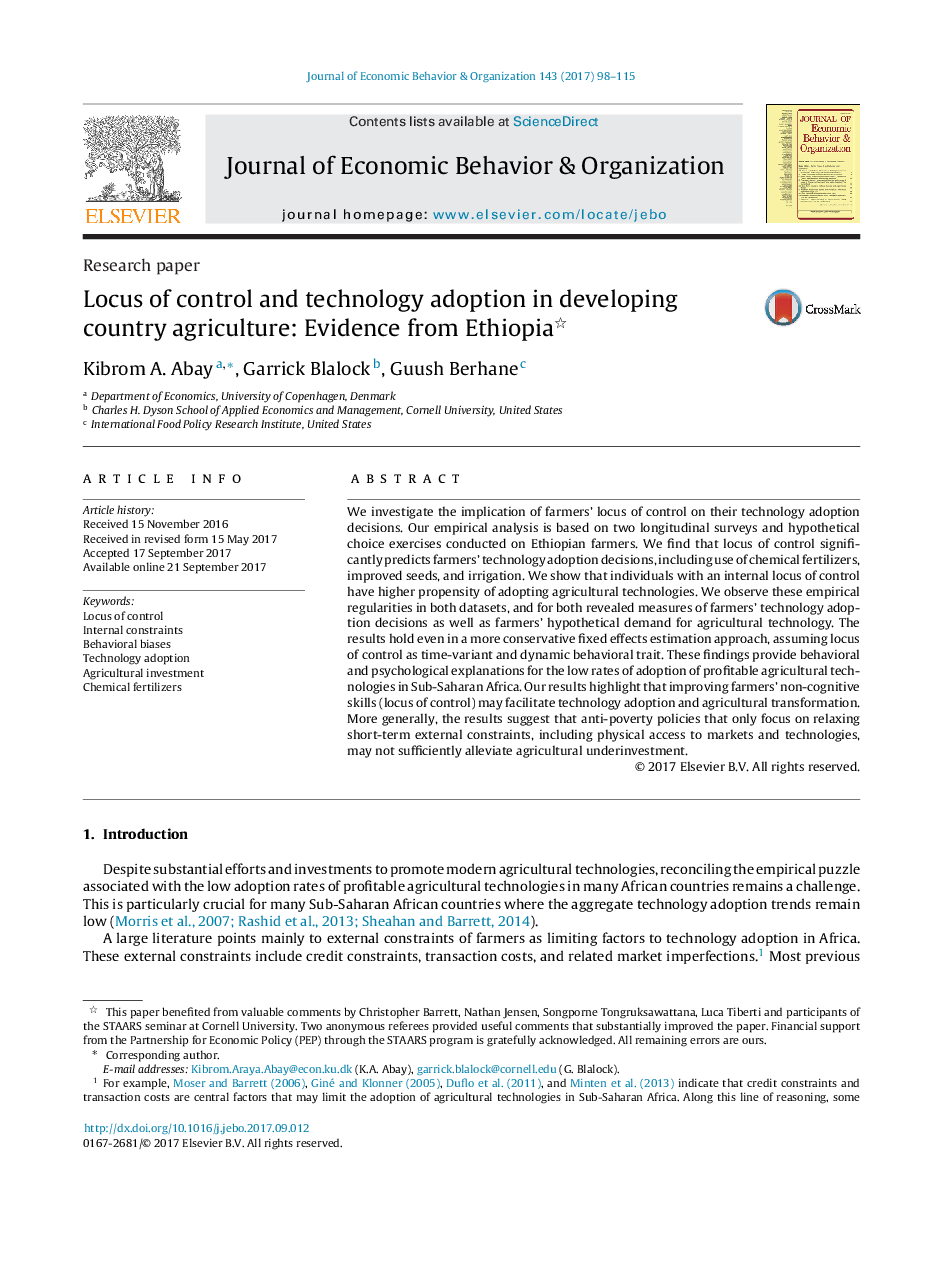| Article ID | Journal | Published Year | Pages | File Type |
|---|---|---|---|---|
| 5034415 | Journal of Economic Behavior & Organization | 2017 | 18 Pages |
â¢We investigate the implication of farmers' locus of control on their technology adoption decisions.â¢We find that locus of control significantly predicts farmers' technology adoption decisions.â¢Individuals with an internal locus of control have higher propensity of adopting agricultural technologies.â¢We observe these empirical regularities in two different longitudinal datasets.â¢The results also hold both for revealed and stated (hypothetical) technology adoption decisions.
We investigate the implication of farmers' locus of control on their technology adoption decisions. Our empirical analysis is based on two longitudinal surveys and hypothetical choice exercises conducted on Ethiopian farmers. We find that locus of control significantly predicts farmers' technology adoption decisions, including use of chemical fertilizers, improved seeds, and irrigation. We show that individuals with an internal locus of control have higher propensity of adopting agricultural technologies. We observe these empirical regularities in both datasets, and for both revealed measures of farmers' technology adoption decisions as well as farmers' hypothetical demand for agricultural technology. The results hold even in a more conservative fixed effects estimation approach, assuming locus of control as time-variant and dynamic behavioral trait. These findings provide behavioral and psychological explanations for the low rates of adoption of profitable agricultural technologies in Sub-Saharan Africa. Our results highlight that improving farmers' non-cognitive skills (locus of control) may facilitate technology adoption and agricultural transformation. More generally, the results suggest that anti-poverty policies that only focus on relaxing short-term external constraints, including physical access to markets and technologies, may not sufficiently alleviate agricultural underinvestment.
